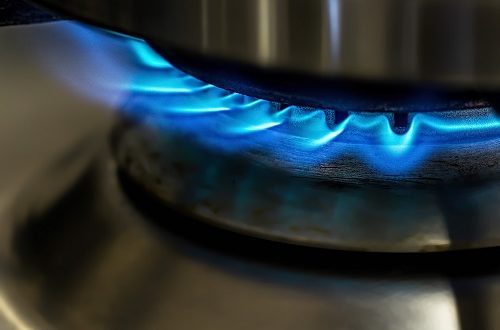The winter season is when your boiler is needed the most, so it’s important to keep your boiler in good condition.
By maintaining your boiler, you won’t have to invest in repairs, and you’ll be able to save money. Here are 10 boiler maintenance tips that you can use in your home this winter:
1. Annual Boiler Services
It’s important to use boiler services even though your boiler may seem like it’s working just fine. This is because it helps to diagnose any issues that our boilers may have and get them fixed as soon as possible.
Getting your boiler serviced helps you save money because of its affordable price and to avoid wasting money on repairs that cost more than the boiler services. A professional gas safety engineer check will also provide a gas certificate that verifies that your gas boiler is safe to use.
2. Don’t Leave it Unused for Too Long
Another common issue that occurs among boilers is that their pumps and valves end up choking on the waste that builds up due to not being in use for long periods.
So, the best way to avoid that from happening is by making sure that you use your boiler, not just in winter but also in summer, even if it’s just for 10-15 minutes.
3. Check Pressure of Boiler
This is an important maintenance tip because it helps you to make sure whether the pressure of your boiler is at the correct pressure or not. The ideal pressure of a boiler must be between 1.0 and 2.0 bars when it is on.
Many boilers have water pressure gauges attached to the front of the boilers to help people when checking the pressure of the boiler. The high and low pressures are represented by red sectors on the dial.
If the pressure of the boiler is too high or low, you can either fix it by following the instructions provided on the control panel or seek help from a professional engineer.
4. Look For a Blue Flame
Another important tip is that you check the flame of your boiler for blue color. A blue flame indicates that your boiler is working fine.
If the color is orange or yellow, then that means there’s something wrong with your boiler, and you should call a gas safe registered engineer.
5. Boiler Pipe Insulation
Pipes that carry hot water in the boiler tend to get blocked and burst due to freezing up because of being exposed to cold air in the winter season. When this happens, some people pour hot water over the pipes to help them unfreeze and not get blocked.
However, this method is not recommended because it can still cause damage to your pipes. If you want to make sure that your pipes don’t get blocked, freeze up, or burst in the winter season, then insulating your pipes with temperature and flame-retardant materials is the best way.
6. Set Up Carbon Monoxide Alarms
Boilers can start to produce carbon monoxide, often without the residents even noticing, which can put their lives at risk.
To avoid this from happening, professionals encourage the installation of carbon monoxide alarms in the home. The purpose of these alarms is to help alert people in case there is a carbon monoxide leak.
It’s also recommended that you have these alarms installed near your boilers so that if your boiler starts to create carbon monoxide, the alarms will immediately pick it up and alert you.
7. Bleed Your Radiators
If the radiators of your boiler are hot from the bottom and cold from the top, then it means that there is air trapped inside the radiators. The best way to fix them is by bleeding the radiators. You can do that with the help of the following steps:
- Remember to turn your heating off before starting, or the radiators will start spewing hot water.
- To turn on the valve on the top of the radiator, use the radiator key.
- You stick the key into the center of the valve and turn it anti-clockwise.
- You’ll start to hear a hissing noise which indicates that the trapped air is escaping.
- You can fasten the valve by turning the key clockwise once the hissing noise stops.
- Clean off the excess water on the valve with a clock, and then turn your heating on.
8. Balance The Radiators
Balancing the radiators of your boiler isn’t as simple as bleeding the radiators. You would need to seek help from a gas safe registered engineer. This is a process that helps to adjust your boiler’s radiators for uniform distribution of hot or warm water.
9. Avoid Blockages
Your gas boilers should never be covered, and their air must be kept unblocked and cleaned regularly. You should also make sure to check for any mess surrounding your boiler that can cause congestion.
Your boiler should be kept in a place where it has enough breathing space to avoid ventilation issues.
10. Seek Help from Professionals
Tasks such as cleaning boiler flues or stabilizing boiler pressure can be conducted by anyone at home. However, issues such as gas leaks or uneven distribution of hot water can’t be resolved by yourself.
If you notice any signs of improper functioning in your boiler, seek professional help from a licensed gas safety engineer immediately. Getting your boiler issues resolved by them will prevent you from facing expensive repairs in the future.
 Homeowners Club If you are one of the 15 million homeowners in the UK, the free to join online Homeowners Club is for you.
Homeowners Club If you are one of the 15 million homeowners in the UK, the free to join online Homeowners Club is for you.








